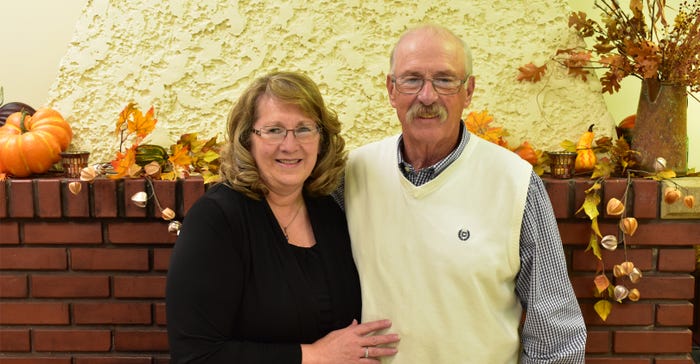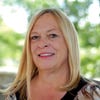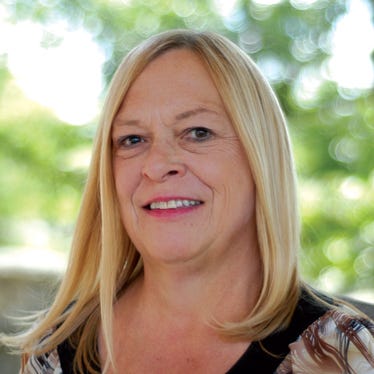
Editor's note: This is the fifth story in a series about the 2019 Class of Kansas Master Farmers.
Farming in Cloud County, Kan., and raising registered Horned Hereford cattle has deep roots for the Swenson family.
Richard (Dick) always knew that he would someday return to the farm, even as he took a job with Moorman Feeds following graduation from Kansas State University and worked several territories in Kansas before becoming a district manager in Iowa. In 1975, a territory opened up for the Marysville area, and Dick jumped at the chance to move back to help with the farming operation as his parents contemplated retirement.
He and Denise were married and in July 1977; they started farming rented land. In 1978, they farmed on a share basis with his parents on land that included the homestead farm, which has been in the family for more than 100 years and joined the Swenson Hereford operation that began in 1934.
The young couple expected to transition into full ownership of the farm over several years. However, Dick’s father died in February 1979, and they had to take ownership faster than they anticipated. They added to his dad’s equipment and began to improve the genetics of the Hereford herd. They also bought his grandmother’s farm from her estate in 1980 and purchased the south half of the homestead farm after his mother’s death in 1981.
“Just like a lot of farm families, we had hard years in the ’80s,” Denise says. “We started just before the interest rates went sky high. We were trying to get land and equipment paid for while simultaneously working off the farm and having babies. It was overwhelming at times, but we were determined to make it so we scrimped and made do, repairing old equipment and holding on. In those times, you had to be very conservative and very creative at the same time.”
Their son Ryan was born in 1980. Kevin came along in 1984, and Benjamin was born in 1988.
Surviving hard times
Dick says having a diversified operation with annual production sales for cattle and feeding out hogs helped them make it through those lean years. He says he was also grateful to have an off-farm job through those years.
That job enabled the struggling young couple to maintain outside income, obtain health insurance and put money into a retirement fund, which the farm and livestock operations would not have been able to supply.
In later years, Dick says continuing to work in the animal feed nutrition business helped him keep up to date with the latest research and apply it in the management of Swenson Herefords. Denise, a licensed real estate agent, also did her part to bring in extra money.
“My job provided additional income, health insurance and a retirement package that we would not have been able to fund during those years,” he says. “Denise was a stay-at-home mom when the boys were young but only in the sense that she didn’t go to an office every day. However, she did work for Farm Bureau claims when they needed her during storm seasons, worked from home for adjusters and clerked auctions. When it came to farm work and livestock work, we did everything together.”
There were many times when Denise had all three boys in the tractor or the grain truck with her, starting from the time they were babies because she was the truck driver hauling the crops to town, he says.
The result was that the boys learned many lessons in childhood: They learned that things don’t always go as planned but when the unexpected happens, you adjust and keep going. They learned how to take care of a newborn calf when there is a blizzard raging along, with the sad truth that sometimes everything you can do is not enough. They learned that rail, wind and floods can take out days and weeks of hard work, and having a diversified operation and a “rainy day” plan is important.
“We are very proud that all three boys chose to continue their education at Kansas State University, and that all three are successful in their lives and careers,” Denise says. “They and their families still help us during harvest, and when we move cattle to and from pastures.”
Good news after hard fight
During a 2019 filled with farming perils, including flooding and nasty weather during calving season, the Swensons faced another challenge — a fight for life after Dick was diagnosed with bladder cancer and underwent chemo, surgery and radiation before being declared cancer-free late in the year.
“We were very blessed to have Kevin nearby. He helped us immensely, especially during calving,” Dick says. All three sons helped when they could, along with neighbors during harvest.
Through the years, the Swensons have worked hard to improve their land using no-till farming, maintaining and adding new terraces and waterways, building ponds, using proper grazing practices to avoid overgrazing of pastures, and replacing their old water drive irrigation system with a water saving, low-pressure drop system. They also use precision guidance systems in the tractor and sprayer, with soil sampling and mapping helping them get the precise amount of fertilizers applied to the right places.
Dick and Denise have also worked to improve the genetics of the cow herd.
“Our herd is not based on the show ring type of cattle, but maternal, efficient and uniform cattle. Our breeding program takes into account much of the philosophy of Dr. Jan Bonsma and his livestock observations,” Dick says. “Our cattle are bred maternally, which provides the genetics of excellent cows and carcasses. Our steers and heifers are like peas in a pod and very uniform, due to a selective breeding program. We have used ultrasound to monitor the cattle development and know our livestock produce very tender carcasses.”
The Swensons have hosted the Kansas Herford tour six times, and in 1996 they co-hosted the World Hereford Tour with visitors from 11 countries. They also hosted an agricultural tour group from Kazakhstan with 20 visitors from Eastern Europe.
Added enterprise
The Swensons have added value to their cattle production by selling seedstock to buyers across the country and by starting Swenson Meat Processing, offering both grass-finished and grain-finished animals. With their son Ryan, they purchased Duis Meat Processing in Concordia, Kan., and Smoky River Meats in Salina, Kan., and have retained the original names of those businesses.
“We also process pork in our Concordia facility. We buy pigs from two area farmers and pay them a premium,” Denise says. “Knowing where their meat comes from is very important to a lot of people.”
They also smoke cheeses in-house and make more than 30 different kinds of sausages in the Salina store.
“For one of our Hereford tours, we had the idea to develop a breakfast sausage made from beef to serve at the breakfast, and we also have beef “bacon” in our stores,” Denise says. “Additionally, we carry a lot of ethnic meats and specialties in the Salina store that are hard to find in the area. There are a lot of Swedish descendants in the Salina area, and at Christmas time, we carry many specialty products that are traditional for Christmas meals.”
They also work with the Concordia FFA chapter for its Christmas gift boxes and supply steaks for the University of Kansas Athletic Department, as well as supplying ingredients to a meat company for restaurants in the Topeka, Kan., area.
About the Author(s)
You May Also Like






